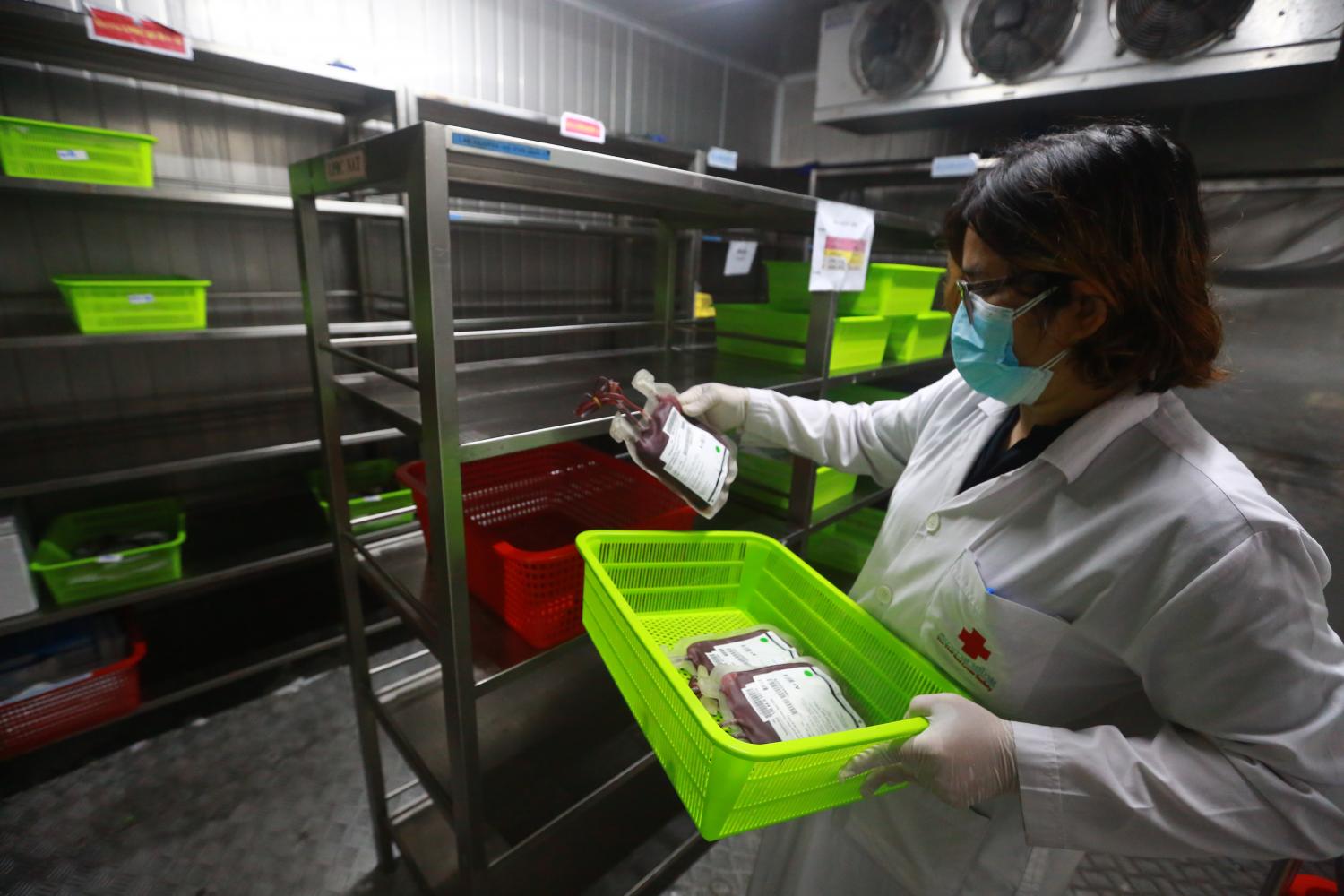
The concerning case of Swiss expat Theo Zwahlen points to a need for Thailand to seriously reevaluate the logic behind its blood donation criteria.
The 25-year-old collapsed on Monday from heatstroke and rhabdomyolysis close to the finish line of a marathon under the scorching sun on Koh Chang in Chanthaburi province.
Mr Zwahlen has O- blood, one of the rarest blood types in Thailand. In order to recover his kidney function, multiple dialyses are needed -- and for him, one dialysis requires several bags of O- platelets -- something the national blood bank at the Thai Red Cross is currently in short supply of.
In response, friends and acquaintances quickly went to work to spread the news on social media about the need for O Rhesus negative platelets.
Posts by several of Mr Zwahlen's friends gained hundreds of shares with one by Chada Peanpaktr gaining over 8,000 shares within 24 hours. Even large influential Thai Facebook pages like Drama Addict and Ejan shared the plea whilst Richard Barrow tweeted about it and Manager Online, Line and the Thaiger ran news articles.
Despite news travelling fast, by Wednesday there was still an urgent need for platelet donations. This is despite the fact that on Tuesday many people showed up at the Red Cross attempting to make a donation for Mr Zwahlen.
And this is due to Thailand's strict blood donation laws, which there is no way around.
Many potential donors were turned away due to their having lived more than three months in the UK between 1980-1996, or more than five years in France or Ireland between 1980 and 2001.
These criteria, according to the WHO, are linked to the "Mad Cow" outbreak and the risk of transmitting its human equivalent, variant Creutzfeldt-Jakob Disease (vCJD), via blood transfusion. This is a standard in many countries outside of the UK including America.
Other reasons many of the potential donors were turned away included being over the age of 60 and attempting to donate blood for the first time in Thailand or having resided in Thailand for less than six months (which rules out most tourists).
Based on these latter criteria, Thailand falls into the category of one of the countries with stricter standards than most when it comes to donating blood.
Thailand's blood donation criteria is too rigid to the point where several expats who are willing to be of help in such crises have claimed that Thailand is the first country where they have been unable to donate blood.
Others stated that based on some of these criteria, they will never be able to donate blood here -- despite having successfully done so multiple times in other countries.
Most of these criteria are shown on the Thai Red Cross's blood donation form, which is easily found via a Google search online.
The strict criteria put Rhesus negative individuals in the kingdom -- and especially O- individuals -- at a particular disadvantage, because they can only receive blood from fellow Rhesus negative blood types, and O-, only from O- donors. O Rhesus negative blood is almost non-existent among Thais (1 in 1,000 people), while in many Western populations the average is 1 out of 15.
Despite that, it will mostly be foreigners, particularly Westerners or those of Caucasian descent, who can help in a Rhesus negative blood or platelet crisis.
But the eligible pool of potential donors is further halved by Thailand's stringent criteria.
This creates the perfect storm in an urgent case like Mr Zwahlen's. Despite thousands of individuals sharing, tweeting, and contacting as many news media and Facebook pages as possible to help spread the word, he still cannot get donors fast enough.
There is a common misconception that the Rhesus designation doesn't matter when it comes to platelets.
This is not true.
RhD-positive patients may receive platelets obtained from RhD-positive or RhD-negative donors without risk. But RhD-negative recipients of platelets obtained from RhD-positive donors are at risk for RhD alloimmunisation.
In this case, due to the shortage of O- platelets, the patient initially had to be put on Rh+ platelets with medication to link them to his own medication that can lead to more long-term damage the longer he is on it.
Right now there are Facebook groups, such as Thailand Emergency Blood Donation, Rhesus negative in Thailand and Thailand O- blood DONOR emergency contacts (type oNeg RH-) that attempt to come to the rescue in such a crisis, but it is not nearly enough when massive amounts of blood or platelets are needed.
The young man in question is still desperately in need of platelets for more dialysis.
Something is wrong when such a plea is shared so widely and we still can't find enough eligible donors. We can only assume that it is the stringent donation criteria that contribute to the frequent blood/platelet donation crises for foreigners or rare blood types in Thailand.
In this case, a young man's life is at stake -- one who likely has at least five decades of life ahead of him should he recover well.
Thailand must reevaluate its blood donation criteria. It needs to consider relaxing them to match international standards so to make blood donation crises for rare blood types less frequent.
As a part of that, it needs to stop deterring would-be donors so that its blood banks are robust enough to serve a diverse population while being able to support a country at the forefront of worldwide tourism.
Anne Somanas is a former freelance and travel media journalist who resides in Bangkok, Thailand.